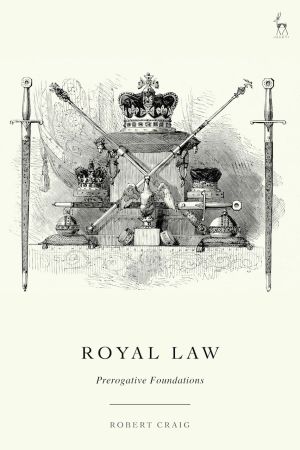We are now closed for the Christmas and New Year period, returning on Monday 5th January 2026. Orders placed during this time will be processed upon our return on 5th January.

This book argues that all non-statutory powers of the Crown are royal prerogative powers and asserts that the Crown does not possess or exercise any 'third source' powers, common law powers or 'Ram doctrine' style freedoms.
It takes as its starting point AV Dicey's definition that the royal prerogative comprises all non-statutory rights, powers, duties, and immunities of the Crown. And it goes on to argue that the famous alternative definition given by Blackstone, that prerogative powers are only those powers that are exclusive to the Crown, must be reconsidered.
The book states that the legal powers of the Crown that appear to resemble private law powers such as ex gratia payments are in fact rooted in the prerogative powers of administration and justice. It explains that the latter is also the original source of legal authority and legitimacy of common law judicial decisions. Common law is, or was, royal law. Third source of judicial authority, a higher 'common law' does not exist. There are only two ultimate sources of jurisdictional authority in this country: statute and prerogative.
It states that Wade's definition of prerogative is wrong. Wade claimed that the Crown has prerogative powers as well as common law powers. The book argues, contra Wade, that the Crown has no common law powers. Nor does it have any 'third source freedoms' as suggested by Harris. If this is correct, then recent case law considering third source powers must be reconsidered as examples of judicial regulation of prerogative powers, including an often-overlooked prerogative power to administer the realm.